Buy Evidence-Based Interventions for Osteoarthritis, Meniscal/Labral Lesions, Muscle/Tendon Strains, & Tendinitis – Michael T. Gross Course at GBesy. We actively participate in Groupbuys and are committed to sharing knowledge with a wider audience. Rest assured, the quality of our courses matches that of the original sale page. If you prefer, you can also buy directly from the sale page at the full price (the SALEPAGE link is directly provided in the post).
Evidence-Based Interventions for Osteoarthritis, Meniscal/Labral Lesions, Muscle/Tendon Strains, & Tendinitis by Michael T. Gross,
Salepage link: At HERE. Archive:
- Faculty:
- Michael T. Gross
- Duration:
- Full Day
- Format:
- Audio and Video
- Copyright:
- Jun 21, 2017
Description
- Protect articular cartilage from further damage, keep the original equipment & avoid total joint replacement
- Comprehensive strategies to make sure repairs of meniscal and labral tears are successful
- Superior techniques for treating first-time muscle strains so they don’t recur
- Effective protocols for patients who have had many muscle strain recurrences
- How to protect tendon pulley mechanisms from tensile stress, compressive stress & frictional abrasion
The content of this course will help clinicians with clinical decision-making to take your practice to an advanced level. Discussion topics are based on research that Dr. Gross has synthesized over the past 30 years of practice, research and teaching. You will leave able to determine the scientific basis to change practice patterns immediately as you return to patient care.
If you could confidently answer the questions below, imagine how it could impact your practice…
- What hand should be used for cane use if a patient has knee varus versus knee valgus?
- What are the appropriate clinical interventions for tendinopathies in instances where tendons wrap around tendon pulley mechanisms?
- What happens when excessive pressures are transmitted across epiphyseal plates?
- How do we help young patients prevent avulsion fractures of apophyses?
- How do we help our patients prevent muscle strain recurrences?
- What are the best detection methods for labral lesions at the hip or glenohumeral joints?
- What are the best detection methods for meniscus lesions at the knee?
- What are evidenced-based guidelines for interventions of knee meniscus lesions, as well as labral lesions of the hip or shoulder?
Handouts
| Manual ZNM063345 (11.02 MB) | 82 Pages | Available after Purchase |
Outline
OSTEOARTHRITIS
- Composition of articular cartilage
- Mechanical properties of articular cartilage
- The 3 main destroyers of articular cartilage
- Exercise parameters that protect articular cartilage from frictional abrasion
- Protecting your patient from impact loading
- Strategies to alter contact pressures
- Conservative and invasive repair attempts and how to manage them
- The interplay between running shoes and foot strike pattern
- So, you thought you knew what hand to use with a cane for knee varus/valgus?
MENISCAL/LABRAL LESIONS
- Changing your thinking about post-scope meniscectomy
- Improving meniscus repair response
- Detecting SLAP lesions – what will be the patient’s story?
- Detecting SLAP lesions – the best special tests
- Basics of SLAP lesion rehab based on lesion type/repair of the lesion
- Detecting hip labral lesions
- Rehabilitation of hip labral lesions
- Joint instability models and effect on meniscus
- Improving the repair response
- Meniscus transplantation
MUSCLE/TENDON STRAINS
- Why the weekend warrior is prone to muscle-tendon juncture injuries – at the microscopic level
- The Jarvinen Approach to treating muscle strain injuries
- Factors that explain why patients have
- recurrent muscle strains – how to end the vicious cycle
- Dealing with compartment injuries
- Apophyseal injuries in the young
- Avulsion injuries among older adults
TENDINITIS
- Tendon structure in healthy tendon and in tendon with chronic tendinosis
- Treating acute tendinitis versus chronic tendinosis
- Tendon pulley mechanisms – the triple whammy
- Strategies to decrease compressive stress in tendon pulley mechanisms
- Strategies to decrease frictional abrasion in tendon pulley mechanisms
- Application of tendon pulley mechanisms to the shoulder, wrist, and ankle
- The “Wringing Out Effect” of Rathbun and McNab and its applications
Faculty
Michael T. Gross, PH.D., PT, FAPTA Related seminars and products: 4
Michael T. Gross, PhD, PT, FAPTA, has 37 years of experience as a licensed physical therapist, specializing in the areas of biomechanics and orthopaedic assessment and treatment. He has maintained a consistent clinical practice for all of these years, currently seeing patients 2 days per week at his faculty practice.
He is a professor in the PhD Program in Human Movement Science, and the Doctorate of Physical Therapy (DPT) program in the Division of Physical Therapy at the University of North Carolina at Chapel Hill. Dr. Gross has 70 refereed journal publications in such journals as the Journal of Orthopaedic and Sports Physical Therapy, Physical Therapy, and the Journal of Manual and Manipulative Therapy. He was an Editorial Review Board Member for the Journal of Orthopaedic and Sports Physical Therapy and serves as a reviewer for many other journals. Dr. Gross was awarded the Teaching Excellence Award from the University of North Carolina at Chapel Hill School of Medicine and the Margaret L. Moore Award for Outstanding New Academic Faculty by the American Physical Therapy Association.
He also was elected as a Fellow of the American Physical Therapy Association. He has given well over 300 regional, national, and international presentations, which have been highly rated by attendees for knowledge, skill, and humor.
Speaker Disclosures:
Financial: Michael Gross is a Professor, Division of Physical Therapy, at the University of North Carolina – Chapel Hill. He receives a speaking honorarium from PESI, Inc.
Nonfinancial: Michael Gross has no relevant nonfinancial relationship to disclose.
Buy the Evidence-Based Interventions for Osteoarthritis, Meniscal/Labral Lesions, Muscle/Tendon Strains, & Tendinitis – Michael T. Gross course at the best price at GBesy.. After your purchase, you will get access to the downloads page. You can download all the files associated in your order at here and we will also send a download notification email via your mail.
Unlock your full potential with Evidence-Based Interventions for Osteoarthritis, Meniscal/Labral Lesions, Muscle/Tendon Strains, & Tendinitis – Michael T. Gross courses. our courses are designed to help you excel.
Why wait? Take the first step towards greatness by purchasing Evidence-Based Interventions for Osteoarthritis, Meniscal/Labral Lesions, Muscle/Tendon Strains, & Tendinitis – Michael T. Gross courses today. We offer a seamless and secure purchasing experience, ensuring your peace of mind. With our trusted payment gateways, Stripe and PayPal, you can confidently complete your transaction knowing that your financial information is protected.
Stripe, known for its robust security measures, provides a safe and reliable payment process. With its encrypted technology, your sensitive data remains confidential throughout the transaction. Rest assured that your purchase is protected.
PayPal, a globally recognized payment platform, offers an additional layer of security. With its buyer protection program, you can feel confident in your purchase. PayPal ensures that your financial details are safeguarded, allowing you to focus on your learning journey.
Is it secure? to Use of?
- Your identity is completely confidential. We do not share your information with anyone. So it is absolutely safe to buy the Evidence-Based Interventions for Osteoarthritis, Meniscal/Labral Lesions, Muscle/Tendon Strains, & Tendinitis – Michael T. Gross course.
- 100% Safe Checkout Privateness coverage
- Communication and encryption of sensitive knowledge
- All card numbers are encrypted using AES at relaxation-256 and transmitting card numbers runs in a separate internet hosting atmosphere, and doesn’t share or save any data.
How can this course be delivered?
- After your successful payment this “Evidence-Based Interventions for Osteoarthritis, Meniscal/Labral Lesions, Muscle/Tendon Strains, & Tendinitis – Michael T. Gross course”, Most of the products will come to you immediately. But for some products were posted for offer. Please wait for our response, it might take a few hours due to the time zone difference.
- If this happens, please wait. The technical department will process the link shortly after. You will receive notifications directly by e-mail. We appreciate your wait.
What Shipping Methods Are Available?
- You will receive a download link in the invoice or YOUR ACCOUNT.
- The course link always exists. use your account to login and download the Evidence-Based Interventions for Osteoarthritis, Meniscal/Labral Lesions, Muscle/Tendon Strains, & Tendinitis – Michael T. Gross course whenever you need.
- You only need to visit a single link, and you can get all the Evidence-Based Interventions for Osteoarthritis, Meniscal/Labral Lesions, Muscle/Tendon Strains, & Tendinitis – Michael T. Gross course content at once.
- You can do your learning online. You can be downloaded for better results and can study anywhere on any device. Make sure your system does not sleep during the download.
How Do I Track Order?
- We always notice the status of your order immediately after your payment. After 7 days if there is no download link, the system will automatically complete your money.
- We love to hear from you. Please don’t hesitate to email us with any comments, questions and suggestions.
![GBesy [GB] GBesy [GB]](https://www.gbesy.com/wp-content/uploads/2023/05/gbesy-Logo-full-100.png)
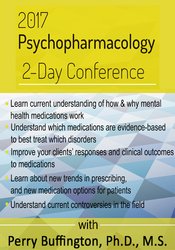
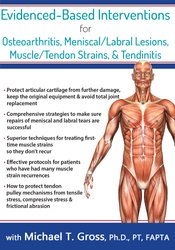

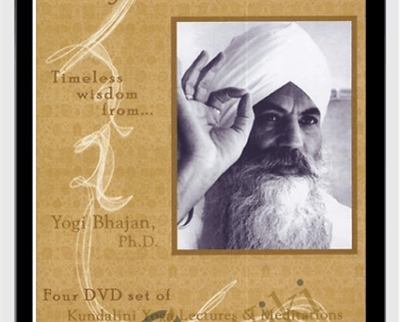
 Purchase this course you will earn
Purchase this course you will earn 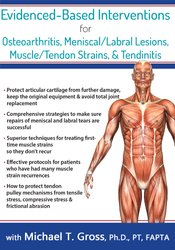
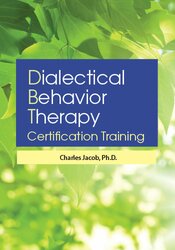
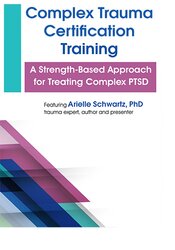

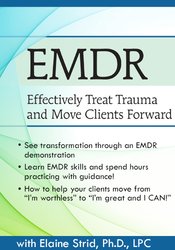
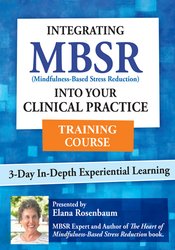
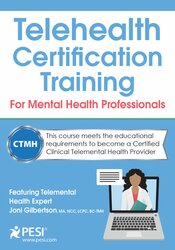
Reviews
There are no reviews yet.